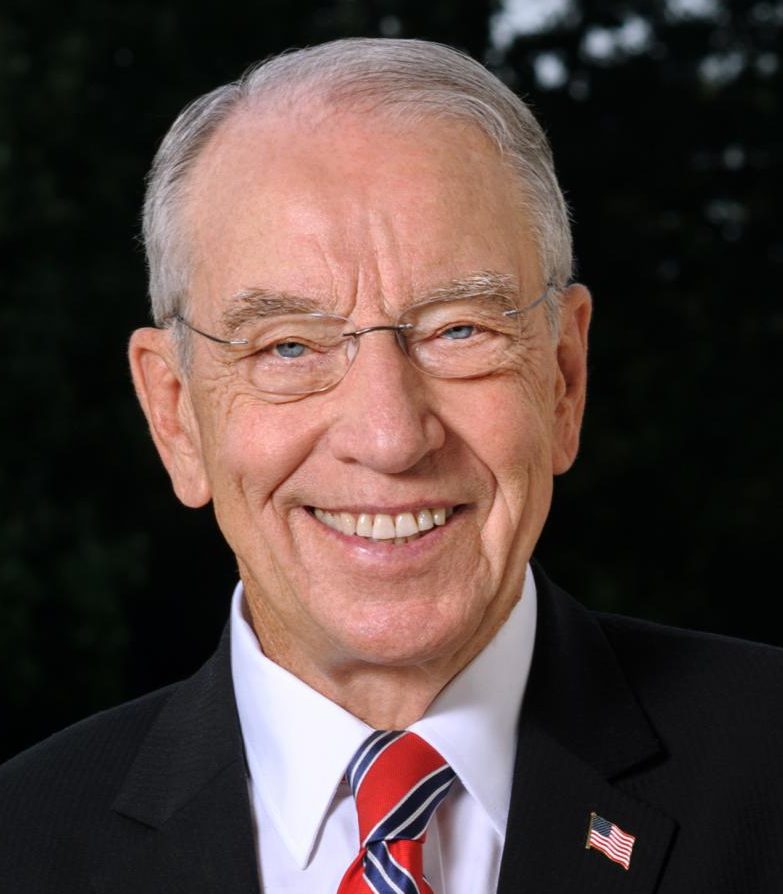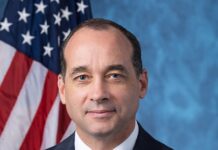Ahead of Attorney General Merrick Garland’s scheduled testimony before the Senate Judiciary Committee next week, Ranking Member Chuck Grassley (R-Iowa) is renewing questions about inappropriate political influence in the Biden administration’s recent changes to the nation’s strategy to combat domestic terrorism and violent crime.
Grassley initially raised questions about the policy changes in July. Despite Garland’s pledge to fully answer oversight requests, the Justice Department failed to address the vast majority of Grassley’s questions in a delayed reply this week.
“On July 12, I wrote to tell you I was greatly concerned after reviewing two new Biden Administration policy documents released in June, which, taken together, suggest Administration efforts to politicize the Justice Department and force law enforcement professionals to support ineffectual, partisan policies. I had hoped your response would demonstrate the Department’s independence. It did not,” Grassley wrote in a follow-up letter to Garland today.
Among the questions the department declined to address, were whether career officials were consulted in the formation of the Biden administration’s policy changes, which prioritize critical race theory in schools and expanded gun controls targeting authorized dealers as a part of its counterterrorism strategy.
“By focusing on legal firearm acquisition and suing gun manufacturers, the Administration has completely failed to respond to the cause of the murder spike plaguing this country: depolicing,” Grassley continued.
Full text of Grassley’s letter today to the Justice Department follows.
October 22, 2021
VIA ELECTRONIC TRANSMISSION
The Honorable Merrick Garland
Attorney General
U.S. Department of Justice
950 Pennsylvania Avenue, N.W.
Washington, DC 20530
Attorney General Garland:
When you appeared before the Senate Judiciary Committee in your confirmation hearings, you pledged to answer the letters you received from Congress. I took you at your word. However, I must tell you that the responses I have received to letters, which have been few indeed, and months late, are incomplete, inadequate, and smack of a desire to evade the purpose of my questions.
On July 12, I wrote to tell you I was greatly concerned after reviewing two new Biden Administration policy documents released in June, which, taken together, suggest Administration efforts to politicize the Justice Department and force law enforcement professionals to support ineffectual, partisan policies. I had hoped your response would demonstrate the Department’s independence. It did not.
On June 15, the National Security Council issued a policy to combat domestic terrorism. Although in broad strokes this policy repeated the strategic objectives and tactical means of a policy previously released by the NSC under the Trump Administration, I was concerned to see that the policy took an extremely partisan tone. For example, aside from the commonsense measures to combat crime such as enhancing cooperation between law enforcement agencies, there was a familiar emphasis on promulgating gun control and promoting teaching of critical race theory in schools. The Administration seems to find every context to be an appropriate one for these same recommendations. Troublingly, there was no mention of the 500-plus domestic terrorism investigations that were opened during the 2020 riots (comprising a significant portion of FBI’s current domestic terrorism investigations), or any strategy to combat anarchist extremism or any form of leftwing extremism. In fact, the policy went so far as to re-characterize an attack which the FBI reported only a month earlier as committed by a black racially motivated violent extremist,[1] as “anti-authority” instead.
Only a week later, on June 23, the Biden Administration announced a violent crime strategy, which is, in fact, a gun control strategy. Instead of acknowledging research that shows that depolicing is at the heart of a violent crime spike that began in June of 2020,[2] the Administration continues to insist that rogue firearms sellers and legal AR-15 owners are truly to blame. These claims rest on the absolutely wrong-headed and unconstitutional notion that gun ownership itself is an evil to be obliterated.
As DOJ found in 2004 after a review of the so-called assault weapons ban, there was no demonstrable effect of banning so-called “assault weapons” on the level of violent crime.[3] As a 2013 CDC-commissioned study found, as many as 3 million people a year defend themselves with a firearm.[4] A 2019 study by DOJ found that few firearms used in crime are acquired from firearm dealers, about 7%, compared to 56% who stole a firearm or bought it in a black market.[5] People are legally buying guns at such a high rate because they no longer have the safety afforded by a fully funded and empowered police force. The President’s policy confuses cause for effect: depolicing causes Americans to turn to firearms to protect themselves. Increased firearm acquisition is fueled by rising crime rates,[6] not the other way around.
In order to demonstrate that the Department is not influenced by partisan documents in enforcing the law, I requested that the Department answer the following questions no later than July 26, 2021:
- Was the Department of Justice, including the FBI, given the opportunity to review the National Security Council’s Countering Domestic Terrorism product?
- Were career attorneys, such as those in the Counterterrorism Section, given an opportunity to review the National Security Council’s Countering Domestic Terrorism product?
- Were career agents, such as those in the Domestic Terrorism Operations Section of the FBI, given the opportunity to review the National Security Council’s Countering Domestic Terrorism product?
- Has the FBI changed its characterization of the attack by Micah Johnson, who killed five police officers in Dallas in 2016, from black racially motivated violent extremist to “anti-authority”?
- If so, was that change in characterization requested by the political leadership of the Department of Justice?
- Additionally, was that change in characterization requested by any political appointee anywhere in the Administration?
- Did career attorneys or agents recommend teaching critical race theory in schools as a potential solution for domestic terrorism?
- Did career attorneys or agents recommend expansive gun control as a potential solution for domestic terrorism?
- Did career attorneys or agents recommend that the policy acknowledge that a quarter of the current domestic terrorism investigations stem from the 2020 riots?
- Did career attorneys or agents recommend that the policy acknowledge a growing number of arrests of anarchist extremists, as Director Wray has?
- Did career attorneys or agents recommend adjustments to the policy based on fatal attacks by black racially motivated violent extremists?
- How prevalent is the use of ghost guns in violent crime?
- How prevalent is the use of semiautomatic rifles in violent crime?
- Is there a historical relationship between rates of legal firearm acquisition and rates of violent crime?
- If so, does violent crime fuel private firearm acquisition?
- How many firearms are sold annually by “rogue” firearms dealers versus acquired by other means?
- How much time will the Department of Justice spend supporting the Administration’s efforts to sue gun manufacturers rather than working on direct law enforcement activities?
The response I received, on October 19, about a week before an oversight hearing, did not answer these questions. The Department has not responded to letters I have sent on its politicization of domestic terrorism on May 7 or June 2 either. Shockingly, the Department conceded that the Biden Administration domestic terrorism strategy did exclude FBI’s characterization of police murderer Micah Johnson as a black racially motivated violent extremist. Nor is Micah Johnson the only black racially motivated violent extremist to commit a fatal attack in recent years—something the strategy also fails to mention. This omission of the FBI’s classification smacks of political partisan messaging, but much more so does the strategy’s complete omission of the 2020 riots. The FBI opened hundreds of domestic terrorism cases, including numerous anarchist extremist cases. Your letter does not respond to my questions about this disturbing omission, and I can only assume this is an admission that partisan politics have in fact shaped the President’s domestic terrorism strategy.
The response I received from you also does not make any reference to whether career experts in the area of domestic terrorism suggested, as the President’s strategy did, critical race theory in schools and expansive gun control as effective counterterrorism strategies. I have to assume that is because they did not. These are policies favored by the Biden Administration, seeking to advance its own policies under the guise of fighting domestic terrorism.
By focusing on legal firearm acquisition and suing gun manufacturers, the Administration has completely failed to respond to the cause of the murder spike plaguing this country: depolicing. The data revealed in your letter about the information you possess on ghost guns and legal firearm dealers only shows that there is no factually-supported reason to believe that targeting them would significantly reduce violent crime.
I urge you to follow up with Erin Creegan of my Committee Staff at (202) 224-5225 to arrange for more complete answers to my questions.
Sincerely,
Charles E. Grassley
Ranking Member
Senate Committee on the Judiciary
















